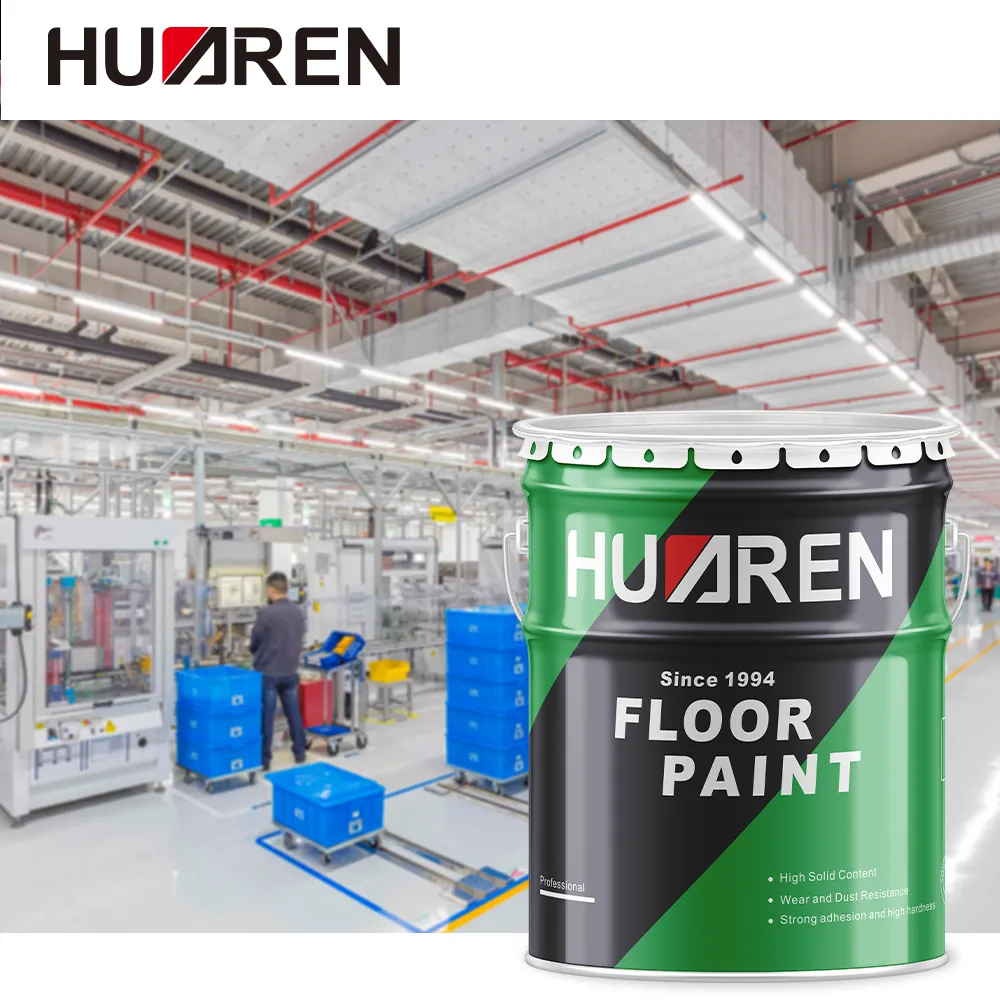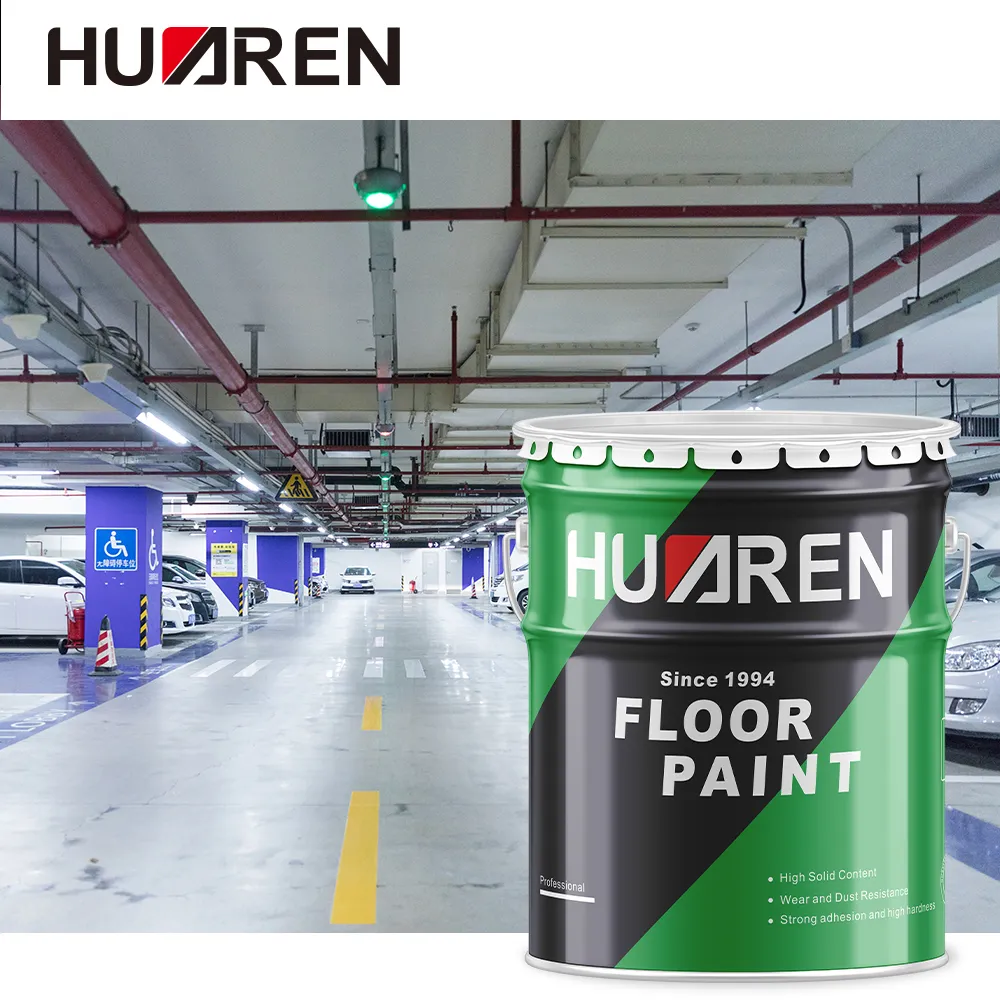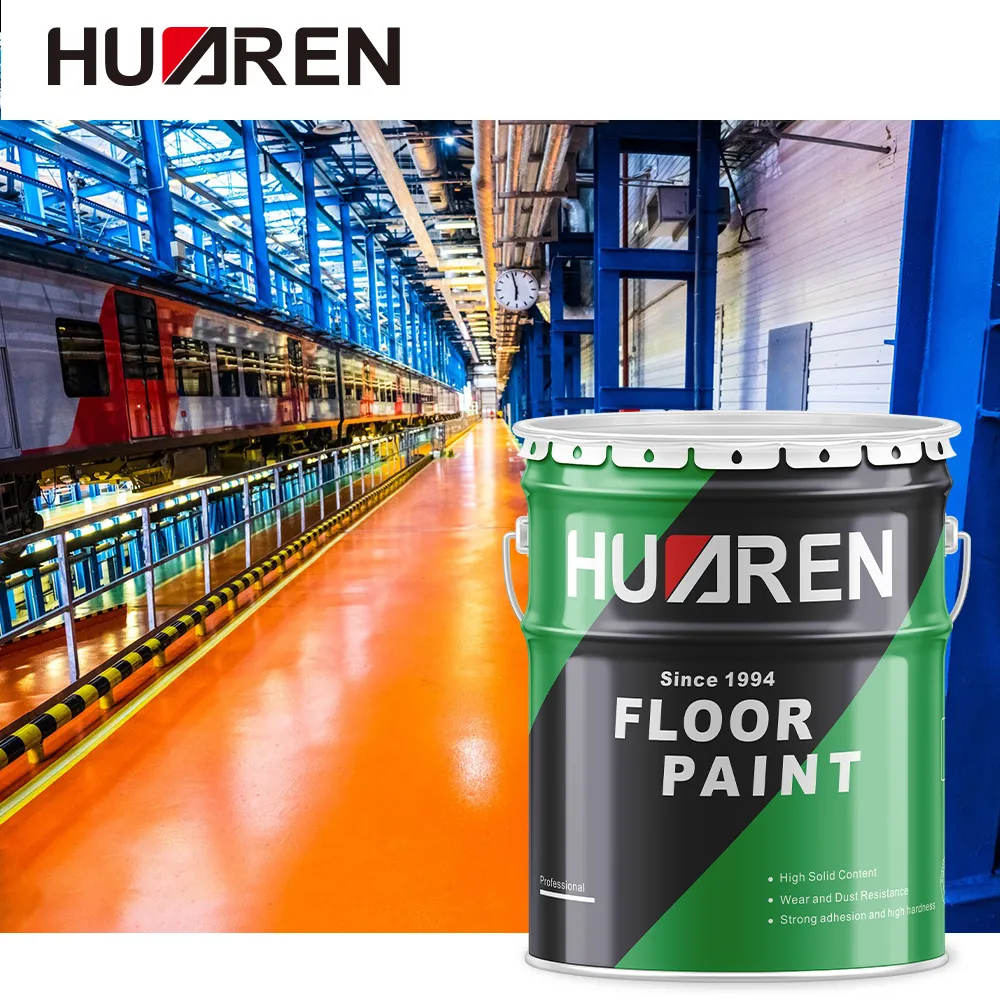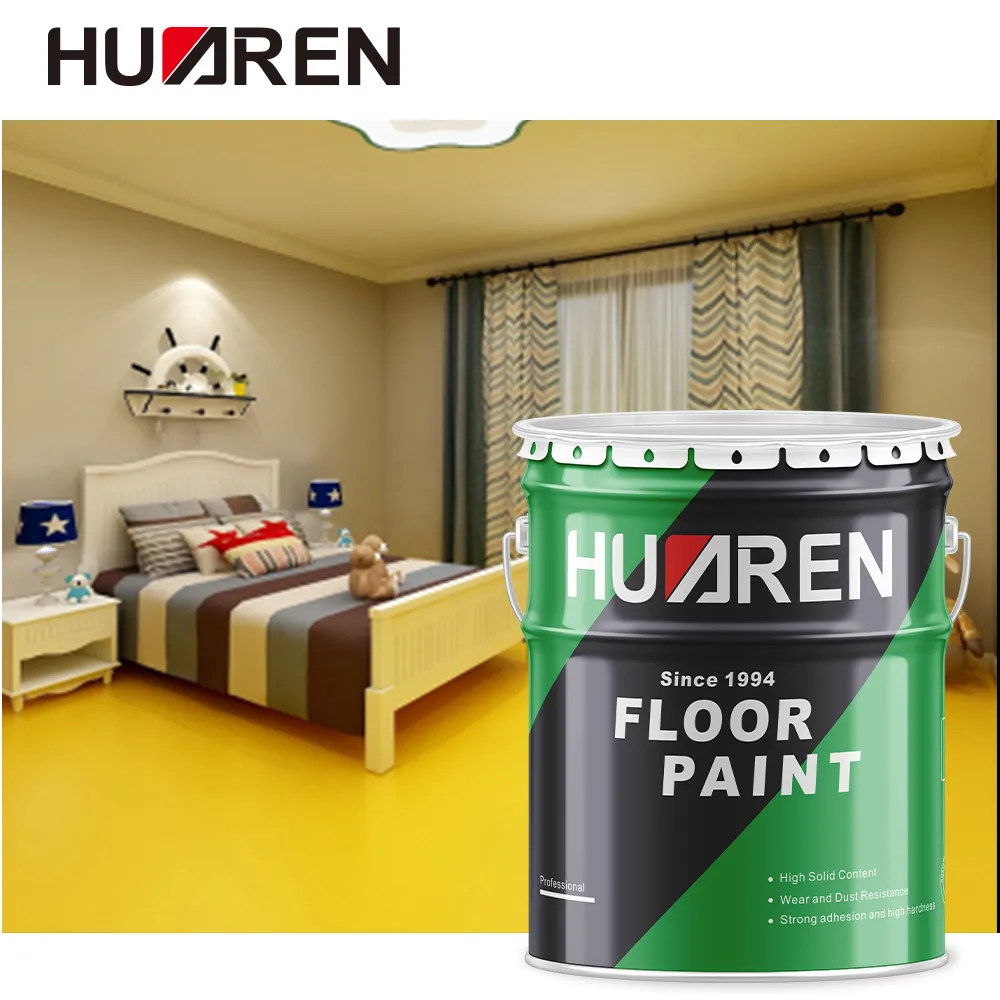Epoxy floor paint is a common floor coating that is widely used in industrial, commercial, home garages and other places. Its main function is to provide a solid, wear-resistant floor that is also dustproof, anti-slip, and waterproof. However, whether epoxy floor paint can seal concrete floors is a question that many people are concerned about.

What are the components of epoxy floor paint?
Epoxy floor paint usually consists of epoxy resin and curing agent. When the two are mixed, a chemical reaction begins, forming a hard, durable coating. This coating has extremely high adhesion, firmly adheres to the concrete floor surface, and provides excellent mechanical strength and chemical resistance.
What is the function of epoxy floor paint?
Epoxy coatings can significantly enhance the durability of concrete floors, protecting them from mechanical wear and chemical attack. Due to its high adhesion and non-porous structure, epoxy floor paint creates a waterproof barrier that prevents moisture from penetrating inside the concrete, thus acting as a seal. In addition, the epoxy coating has a smooth surface and is easy to clean, effectively preventing the adhesion of dust, oil and other pollutants. Epoxy floor paint can also add different colors and decorations to give the ground rich colors and patterns, improving the aesthetics of the environment.
The sealing effect of epoxy floor paint on concrete floors
The main purpose of sealing a concrete floor is to prevent the penetration of moisture, oil, and other chemicals, thereby protecting the concrete structure from erosion. Epoxy floor paint does this very well. Its sealing function is mainly reflected in the following aspects:
1. Prevent moisture penetration: The concrete floor itself has certain porosity and can easily absorb moisture. Prolonged moisture immersion can cause concrete to crack, spall, or even cause structural damage. The non-porous structure of epoxy floor paint can effectively seal the concrete surface and prevent moisture penetration.
2. Block chemical corrosion: In industrial environments, concrete floors are often exposed to various chemicals, such as acids, alkalis, oils, etc. These chemicals may penetrate the concrete and cause it to react chemically, damaging the floor structure. The coating of epoxy floor paint creates a strong chemical barrier that prevents these substances from attacking.
3. Prevent crack expansion: The hard coating formed by epoxy floor paint after curing can not only cover the tiny cracks on the floor surface, but also prevent these cracks from further expansion under the action of external forces or environmental changes, thereby extending the service life of the floor. .

Comparing Epoxy Floor Paint to Other Sealing Coatings
In addition to epoxy floor paint, there are other types of sealing coatings on the market, such as polyurethane floor paint, acrylic floor paint, etc. So, what is the difference between epoxy floor paint and these coatings?
1. Epoxy floor paint: The biggest advantage of epoxy floor paint is its excellent wear resistance and chemical resistance, which is especially suitable for industrial floors that require high strength and durability. However, its disadvantage is that its UV resistance is poor, and long-term exposure to sunlight may cause the coating to turn yellow or powder. Therefore, epoxy floor paint is more suitable for indoor environments.
2. Polyurethane floor paint: Polyurethane floor paint has good flexibility and impact resistance, and is suitable for use on floors with slight deformation or vibration. In addition, polyurethane paint also has good UV resistance, so it is more suitable for use outdoors or on floors exposed to sunlight.
3. Acrylic floor paint: Acrylic floor paint dries quickly and is easy to apply. It is usually used in light industrial or commercial places. However, it is not as resistant to chemicals and abrasion as epoxy floor paint, so it is more suitable for use in areas with lighter loads.
In terms of sealing performance, epoxy floor paint is superior to other types of floor coatings in most cases due to its strong waterproof and chemical resistance, especially in industrial environments.

Construction and maintenance of epoxy floor paint
In order to give full play to the sealing effect of epoxy floor paint, it is important to pay attention to the precautions during the construction process. Before applying epoxy floor paint, the concrete floor must be thoroughly cleaned to remove all dust, oil, and loose particles. At the same time, cracks and holes on the floor surface should be repaired to ensure a smooth and even coating.
Secondly, before officially applying epoxy floor paint, it is recommended to apply a layer of epoxy primer first. Primer can enhance the adhesion of the epoxy coating to the concrete floor, while further sealing the pores of the concrete to improve the sealing effect.
In addition, in order to ensure the sealing effect, the coating thickness of epoxy floor paint should be moderate. A coating that is too thin may not provide adequate protection, while a coating that is too thick may cause uneven curing and affect the overall effect. The curing time of epoxy floor paint is usually 24 to 72 hours. During this period, people should be avoided or heavy objects should be placed on the floor. After curing is complete, the floor will have complete sealing and protection capabilities.
Although epoxy floor paint is highly durable, regular cleaning and maintenance are still necessary. Avoid using strong acid or alkaline cleaners as they may damage the coating surface.

What are the application scenarios of epoxy floor paint?
The sealing properties of epoxy floor paint make it suitable for a variety of situations, especially in environments that require waterproofing and chemical resistance. Here are some common application scenarios:
1. Industrial workshops: The floors of industrial workshops usually bear large mechanical loads and may be exposed to various chemical substances. Epoxy floor paint not only provides strong abrasion resistance, but also effectively seals the floor to prevent chemical penetration and damage.
2. Warehouses and logistics centers: The floors of warehouses and logistics centers need to carry a large number of cargo transportation tools, such as forklifts. The high strength and dust-proof properties of epoxy floor paint make it ideal for these locations.
3. Underground garages: Underground garages are often damp and prone to water accumulation, and ordinary concrete floors cannot withstand long-term water vapor erosion. Floors coated with epoxy floor paint not only prevent moisture penetration, but also provide anti-slip protection to ensure the safety of vehicles and pedestrians.
4. Food processing plants: Food processing plants need to maintain high hygiene standards and floors must be easy to clean and not accumulate dirt. The non-porous structure and smooth surface of epoxy floor paint make it ideal for this environment, while also preventing the penetration of liquids and chemicals.

